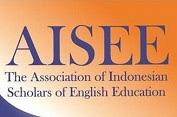Impact of Micro Teaching Program on English Education Fresh Graduates' Teaching Skills
DOI:
https://doi.org/10.36706/jele.v11i1.32Keywords:
microteaching, teaching skills, fresh graduateAbstract
Microteaching must give important teaching skills to EFL students. Some studies have investigated its impact on EFL students’ teaching skills but no study has been focused on fresh graduates. This study was a descriptive qualitative study with the aim to find out the impact of micro teaching on teaching skills of the fresh graduates of the English Education study program of Sriwijaya University. The participants were six of the fresh graduates in English Education study program of Sriwijaya University. The instruments were a questionnaire on Google Form and a semi-structured interview. The collected data were analyzed descriptively in the form of percentages for the questionnaire and the data from interview were analyzed through the methods of data reduction, data display, and conclusion drawing or verification. The findings showed that the microteaching class had given positive impacts on the teaching skills of the fresh graduates. The program improved the teaching skills and teaching set such as (lesson plan, material, teaching media, students’ worksheet and assessment. It also enhanced the way the class is managed and handled effectively, including how to open and close it. To put it briefly, this program helped freshly graduated students adjust to life in the real classroom.
References
Bhatia, M. K. (2017). Data analysis and its importance. International Research Journal of Advanced Engineering and Science, 2(1), 166-168. http://dx.doi.org/10.22541/au.170436307.72289695/v1
br Sembiring, Y., br Ginting, B., Sandriani, S., Sianipar, T. C. M., br Sinurat, S. I., & Lumbanbatu, I. M. F. (2024). Designing reading material based on Graha Bunda Maria Annai Velangkanni. International Journal of Integrative Sciences, 3(1), 1-16.
Esterberg, K. G. (2002). Qualitative methods in social research. McGraw-Hill Book Co Inc.
James, N. C., Uwannah, N. C., Egwuonwu, C. O., & Joshua, S. (2022). Impact of micro-teaching, mentoring and teaching practice on the competency of final year student-teachers in Ekiti State University, Ekiti State, Nigeria. Zaria journal of Educational Studies (ZAJES), 22(1), 27-43.
Miles, M. B., & Huberman, A. M. (1994). Qualitative data analysis: An expanded sourcebook. Sage.
Onwuagboke, B. B. C., Osuala, R. C., & Nzeako, R. C. (2017). The impact of microteaching in developing teaching skills among pre-service teachers in Alvan Ikoku College of Education Owerri, Nigeria. African Research Review, 11(2), 237-250. https://doi.org/10.4314/afrrev.v11i2.18
Pambudi, B. A., & Gunawan, I. (2020). The effect of learning leadership and academic supervision on teacher teaching skills in the covid-19 pandemic. 6th International Conference on Education and Technology (ICET 2020)
Reddy, K. (2019). Teaching how to teach: microteaching (a way to build up teaching skills). Journal of Gandaki Medical College-Nepal, 12(1), 65-71. https://doi.org/10.3126/jgmcn.v12i1.22621
Sa'ad, T. U., Sabo, S., & Abdullahi, A. D. (2015). The Impact of micro-teaching on the teaching practice performance of undergraduate Agricultural Education students in College of Education, Azare. Journal of Education and Practice, 6(26), 109-115.
Sagban, A. A., AlMumar, H. A., & Hashim, Z. F. (2021). The effect of microteaching technique of Iraqi EFL student teachers on their teaching performance and attitudes. Journal of Language and Linguistic Studies, 17(4), 1984-1997.
Salman, M., Dewi, R., & Ma’ruf, A. (2022). Students’ perception toward microteaching subject in supporting the students teaching skill. Jurnal Keguruan dan Ilmu Pendidikan (JKIP), 9(1), 27-35.
Sata, M. R. M., & Erna, E. (2020). An Analysis of the teaching skill of English students in microteaching course at Madako University. Jurnal Madako Education, 6(2), 104-110.
Sidiq, U., Choiri, M., & Mujahidin, A. (2019). Metode penelitian kualitatif di bidang pendidikan. Journal of Chemical Information and Modeling, 53(9), 1-228.
Downloads
Published
Issue
Section
License
Copyright (c) 2024 The Journal of English Literacy Education: The Teaching and Learning of English as A Foreign Language

This work is licensed under a Creative Commons Attribution-ShareAlike 4.0 International License.













